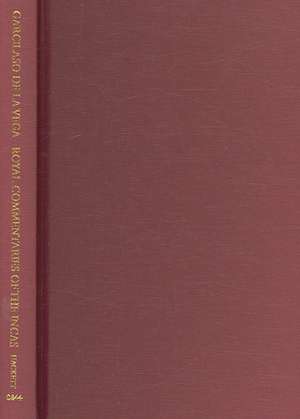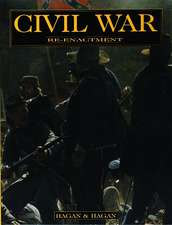The Royal Commentaries of the Incas and General History of Peru, Abridged: Abridged
Autor Garcilaso De La Garcilaso De La Vega Traducere de Harold V. Livermore Editat de Karen Spaldingen Limba Engleză Hardback – 15 sep 2006
| Toate formatele și edițiile | Preț | Express |
|---|---|---|
| Paperback (1) | 133.53 lei 3-5 săpt. | |
| Hackett Publishing Company – 14 sep 2006 | 133.53 lei 3-5 săpt. | |
| Hardback (1) | 326.58 lei 3-5 săpt. | |
| Hackett Publishing Company – 15 sep 2006 | 326.58 lei 3-5 săpt. |
Preț: 326.58 lei
Preț vechi: 356.91 lei
-8% Nou
Puncte Express: 490
Preț estimativ în valută:
62.50€ • 67.86$ • 52.50£
62.50€ • 67.86$ • 52.50£
Carte disponibilă
Livrare economică 01-15 aprilie
Preluare comenzi: 021 569.72.76
Specificații
ISBN-13: 9780872208445
ISBN-10: 0872208443
Pagini: 264
Ilustrații: maps
Dimensiuni: 9 x 215 x 21 mm
Greutate: 0.42 kg
Ediția:Abridged ed.
Editura: Hackett Publishing Company
Colecția Hackett Publishing Company, Inc (US)
ISBN-10: 0872208443
Pagini: 264
Ilustrații: maps
Dimensiuni: 9 x 215 x 21 mm
Greutate: 0.42 kg
Ediția:Abridged ed.
Editura: Hackett Publishing Company
Colecția Hackett Publishing Company, Inc (US)
Recenzii
Karen Spalding's abridgment of Livermore's translation is an excellent example of what a sourcebook for classroom use should be. It has a wonderfully enlightening Introduction and the texts are well selected, allowing students to grasp the breath, complexity, and importance of Garcilaso's work. This book enables teachers and professors to expose their students to a unique literary, historical, and artistic production by a mestizo who reflects on both conquest and miscegenation in early colonial Peru. --Tamar Herzog, Stanford University
Abridging fifteen hundred pages to a concise two-hundred-page book, Karen Spalding has provided educators with a text that makes this important author accessible to undergraduates. . . . By publishing both parts of his history together . . . Spalding encourages students to compare the rational Inca state with the corruption anad deception of Spanish administrators--exactly as Garcilaso had intended. . . . Spalding's abridgment of Garcilaso carefully includes excerpts from the major issues detailed in Garcilaso's rich history. --R. Jovita Baber, (University of Illinois-Champaign), in The Sixteenth Century Journal
Karen Spalding has taken this acclaimed translation of both Royal Commentaries and its less-often-read second part, General History of Peru, to produce an outstanding abridged version of the complete work aimed at undergraduate students but that is also appropriate for a learned general audience curious about Peru's Inca past and the Spanish conquest. . . . This is an excellent introduction to a classic of Latin American Letters. By editing both parts together and giving them equal space, Spalding enables readers to see how Garcilaso argued that the Inca leaders prepared Andean people for the arrival of Christianity and that this possibility was tragically destroyed by the greed and lack of virtue of the conquistadores, who destroyed the social and economic basis of Inca society. --Luis Millones Figueroa, Colby College
Abridging fifteen hundred pages to a concise two-hundred-page book, Karen Spalding has provided educators with a text that makes this important author accessible to undergraduates. . . . By publishing both parts of his history together . . . Spalding encourages students to compare the rational Inca state with the corruption anad deception of Spanish administrators--exactly as Garcilaso had intended. . . . Spalding's abridgment of Garcilaso carefully includes excerpts from the major issues detailed in Garcilaso's rich history. --R. Jovita Baber, (University of Illinois-Champaign), in The Sixteenth Century Journal
Karen Spalding has taken this acclaimed translation of both Royal Commentaries and its less-often-read second part, General History of Peru, to produce an outstanding abridged version of the complete work aimed at undergraduate students but that is also appropriate for a learned general audience curious about Peru's Inca past and the Spanish conquest. . . . This is an excellent introduction to a classic of Latin American Letters. By editing both parts together and giving them equal space, Spalding enables readers to see how Garcilaso argued that the Inca leaders prepared Andean people for the arrival of Christianity and that this possibility was tragically destroyed by the greed and lack of virtue of the conquistadores, who destroyed the social and economic basis of Inca society. --Luis Millones Figueroa, Colby College









